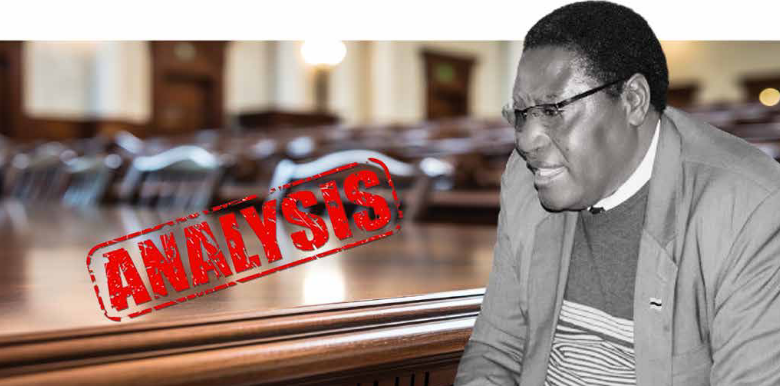- AG launched appeal against High Court decision in favour of former head of DCEC
- Case hinges on authority of DISS to seal DCEC Director General’s office
GAZETTE REPORTERS
The Court of Appeal on Thursday heard an appeal by the Attorney General against the decision of High Court judge Reuben Lekorwe in favour of the former Director General of the Directorate on Corruption and Economic Crimes (DCEC), Tymon Katlholo.
The High Court had found that the Directorate of Intelligence and Security Services (DISS) did not have the authority to seal the DCEC Director General’s office and ordered that all files within the office be placed in the custody of the court for safekeeping.
On appeal, the Attorney General sought to convince the court that DISS was within its mandate and had the authority to question DCEC officers and seal the Director General’s office under the auspices of national security.
Consent
The state also argued that as a department of government, DCEC had no legal authority to sue another department without the consent of the Attorney General.
The Attorney General argued on behalf of the government that DCEC, as a department of the government, has no rights it can enforce without the consent of the Attorney General and therefore lacks the independence that the High Court found it had.
Katlholo, in contrast, sought to convince the Court of Appeal that the DCEC is an independent organ and as such he had an obligation to protect the integrity of the institution and its investigations from external interference.
UN Convention Against Corruption
Katlholo’s legal team argued that Botswana had international obligations under the legally binding United Nations Convention Against Corruption to ensure that DCEC was functionally independent and that the government had introduced the Convention’s obligations in a 2013 amendment to the Anti-Corruption Act that states: “Any decision, including investigations by the Director General, shall not be subject to the direction and control of any person or authority”.
Khatlholo’s legal team argued that to adopt the Attorney General’s position would undermine the rule of law and undermine Botswana’s democracy.
The Court of Appeal has reserved judgment to a date to be announced. The judgment is expected to determine the critical issue of DCEC’s independence, which is an issue that has plagued the organisation from its inception in 1994.
Reprisals
External and political interference in DCEC and erosion of public trust in the organisation due to its perceived lack of independence and its staff’s fear of reprisals from its rival, DISS, has come to the fore in recent years with the appointment of five Director Generals in as many years and the appointment of staff to the organisation who have been tainted with allegations of political bias and perjury.
Katlholo served two stints at the anti-corruption agency and was the first Motswana to head the embattled organisation.
The end of his first tenure came in the wake of investigations into the Khama family and its connections to procurement at the Botswana Defence Force during the late 1980s to mid-1990s when former president Ian Khama was head of the BDF and his siblings were running Seleka Springs, a company that was awarded tenders to supply military equipment and other goods, much of which turned out to be non-useable.
On his return to DCEC, Katlholo’s tenure was marked by investigations into the current Permanent Secretary to the President and head of the civil service, Emma Peloetletse, and the Director General of DISS, Fana Magosi.
Katlholo was suspended and subsequently dismissed a day after informing then Acting President Slumber Tsogwane that he intended to levy corruption charges against the PSP and the Director General of the DISS.
Political expediency
Since Katlholo’s removal from office, neither the PSP nor the Director General of DISS have been charged.
Throughout his career, Katlholo has been a staunch advocate of the independence of DCEC and the need to ensure that the anti-corruption organisation fosters public and international trust by transparent investigations that are unbiased and not influenced by political expediency.
The High Court had granted judgement in favour of Katlholo after DISS agents, led by Jet Mafuta, raided and barricaded his office at DCEC. Katholo was out of the country on official duty at the time of the raid.
He launched the legal proceedings out of concern that the DISS action undermined DCEC and the integrity of pending investigations involving senior DISS officers.

